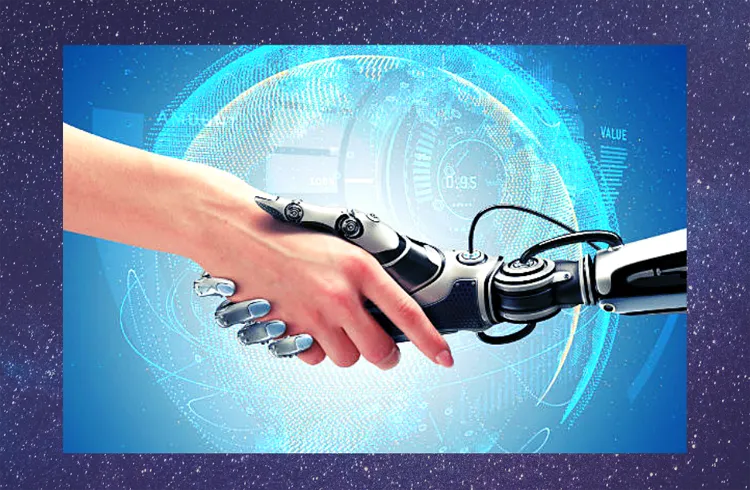Introduction to Technology in Pakistan
Technology is transforming the way nations operate, and Pakistan is no exception. From e-governance to fintech, advancements in technology are helping the country navigate its challenges and embrace opportunities. As the world becomes more interconnected, Pakistan’s digital journey has gained significant momentum, driven by emerging trends such as artificial intelligence (AI), blockchain, and 5G networks. Staying informed about these advancements is crucial for businesses, policymakers, and individuals aiming to thrive in the digital economy.

The integration of technology in Pakistan is not just about innovation but also about creating a more inclusive and equitable society. By bridging the digital divide and ensuring access to technological tools and platforms, Pakistan can unlock its true potential and position itself as a leader in the global tech landscape.
Key Developments in Pakistan’s Tech Scene
AI’s Growing Impact in Pakistan
Artificial intelligence has become a cornerstone of innovation worldwide, and Pakistan is catching up fast. AI is being deployed in diverse sectors such as healthcare, education, and agriculture. For example:
- Healthcare: AI-powered diagnostic tools are helping improve early disease detection, especially in rural areas where access to medical facilities is limited. Predictive analytics are also aiding healthcare providers in managing resources more efficiently.
- Education: Edtech platforms are utilizing AI to personalize learning experiences for students, making quality education more accessible. Virtual tutoring powered by AI is enabling students to learn at their own pace and overcome traditional barriers to education.
- Agriculture: Smart farming technologies are leveraging AI to optimize crop yields and predict weather patterns. AI-driven pest control systems and soil monitoring tools are helping farmers make informed decisions, boosting productivity.
Pakistan’s government and private sector are increasingly investing in AI research and development. Initiatives like the National Center of Artificial Intelligence (NCAI) aim to position the country as a regional hub for AI innovation.

The Role of Business Tech
Technology adoption in business has accelerated in recent years, with companies leveraging tools to streamline operations and enhance customer experiences. Key areas include:
- Cloud Computing: Businesses are migrating to cloud platforms for scalability and cost efficiency. This shift is enabling startups and established companies to access advanced tools without significant upfront investment.
- Fintech: The rise of digital payment systems like Easypaisa and JazzCash has revolutionized financial transactions, fostering greater financial inclusion. Small and medium enterprises (SMEs) are particularly benefiting from fintech solutions that offer accessible credit and digital payment options.
- E-commerce: Online marketplaces such as Daraz are leveraging technology to expand their reach, connecting buyers and sellers nationwide. The integration of AI-driven recommendation systems and secure payment gateways has further enhanced user experience.
Business technology is not limited to large corporations. SMEs and micro-entrepreneurs are also adopting digital tools to reach wider audiences and improve operational efficiency, signaling a broader shift toward a tech-savvy economy.
5G Networks and Connectivity
The rollout of 5G in Pakistan promises to revolutionize connectivity. By providing faster internet speeds and lower latency, 5G will enable new applications in:
- Smart Cities: Advanced connectivity will support IoT devices, making cities more efficient and livable. From smart traffic management systems to energy-efficient grids, 5G will be at the core of urban innovation.
- Remote Work: Enhanced internet speeds will facilitate remote work and education, enabling more Pakistanis to participate in the global gig economy. This could significantly reduce unemployment and create new avenues for income generation.
- Healthcare: Telemedicine services will benefit from reliable high-speed connections, improving access to care. Remote consultations, real-time health monitoring, and virtual surgeries will become more feasible with 5G.
The introduction of 5G is expected to create new industries and job opportunities, while also addressing existing challenges in connectivity, particularly in remote and underserved areas.
Blockchain and Cryptocurrency
Although still in its nascent stage, blockchain technology is gradually gaining traction in Pakistan. Applications include:
- Supply Chain Management: Blockchain ensures transparency and traceability in supply chains, reducing fraud and enhancing efficiency. This is particularly beneficial for Pakistan’s agriculture and textile sectors, which are key export industries.
- Digital Identity: Secure blockchain-based systems are being explored for e-governance initiatives, including voter registration and public service delivery. This could lead to greater accountability and trust in government processes.
- Cryptocurrency: While regulations are still evolving, there is growing interest in cryptocurrencies, reflecting a shift toward decentralized finance. Platforms and communities dedicated to cryptocurrency education are helping Pakistanis understand the potential benefits and risks of this emerging financial system.
The government’s proactive approach to blockchain adoption, coupled with increasing public awareness, positions Pakistan to leverage this transformative technology for sustainable growth.

The Importance of Staying Updated on Technology
Benefits for Businesses
For businesses, staying updated on technological trends ensures they remain competitive. Embracing the latest tools enables companies to:
- Enhance productivity through automation, allowing employees to focus on higher-value tasks.
- Improve customer satisfaction with personalized services that cater to individual needs and preferences.
- Reduce costs by adopting efficient solutions that optimize resource allocation and minimize waste.
Technology also opens doors to new markets, enabling businesses to expand their reach beyond traditional boundaries. By staying informed, companies can identify emerging trends and pivot their strategies to stay ahead of the curve.
Empowering Individuals
For individuals, being informed about technological advancements is essential for:
- Career growth: Learning in-demand skills increases employability. Professionals equipped with knowledge of AI, data science, and blockchain are highly sought after in the job market.
- Daily convenience: Utilizing tech-based solutions simplifies tasks like shopping, banking, and communication. Apps and platforms that streamline daily activities save time and effort.
- Personal development: Access to online learning platforms fosters continuous education. From coding bootcamps to language courses, technology provides endless opportunities for self-improvement.
Staying updated on technology not only enhances individual capabilities but also contributes to a more informed and skilled workforce, which is essential for national development.
Supporting National Growth
Technology plays a pivotal role in national development. By keeping abreast of technological progress, stakeholders can:
- Shape effective policies for digital transformation that address the unique needs of Pakistan’s population.
- Foster innovation and entrepreneurship, encouraging the creation of homegrown solutions to local challenges.
- Attract foreign investments by showcasing technological potential and a commitment to progress.
When technology is integrated strategically into national plans, it becomes a powerful tool for addressing socio-economic challenges and driving sustainable growth.
Conclusion
Technology is reshaping Pakistan’s future, offering opportunities to drive growth, innovation, and inclusivity. By staying informed about trends like AI, blockchain, and 5G, businesses, individuals, and policymakers can harness the potential of the digital age. The journey is not without challenges, such as ensuring equitable access and addressing cybersecurity concerns. However, with the right strategies and investments, Pakistan can emerge as a formidable player in the global tech ecosystem.
The country’s digital transformation is a shared responsibility. Collaboration among government bodies, private enterprises, educational institutions, and the public is essential to create a tech-driven society that benefits everyone. By embracing the opportunities presented by technology, Pakistan can secure a brighter and more prosperous future.
FAQs
Q1: How is AI transforming Pakistan’s business sector?
AI is enabling businesses to improve efficiency and decision-making. From customer service chatbots to predictive analytics, AI is helping companies optimize operations and deliver better experiences to customers. AI-driven marketing strategies and demand forecasting are also enhancing competitiveness in various industries.
Q2: What are the benefits of 5G technology for Pakistan?
5G technology will improve connectivity, enabling advancements in remote work, telemedicine, and smart city projects. It will also enhance the efficiency of industries reliant on IoT and real-time data. Additionally, 5G will support the development of new services and applications, creating economic opportunities.
Q3: How can individuals stay updated on technology trends in Pakistan?
Individuals can stay informed by following reliable tech news platforms, joining online communities, and enrolling in courses on emerging technologies. Participating in local tech events and hackathons is another excellent way to stay connected with the latest trends and innovations.
Q4: Is cryptocurrency legal in Pakistan?
While cryptocurrency is not yet fully regulated, there is growing interest and debate about its potential. The government is working on frameworks to ensure safe adoption. In the meantime, individuals interested in cryptocurrency should exercise caution and rely on trusted platforms for trading.
Q5: What role does technology play in education in Pakistan?
Technology is revolutionizing education by providing online learning platforms, virtual classrooms, and AI-powered tools that personalize learning experiences for students across the country. Initiatives like tele-education in remote areas and gamified learning modules are breaking traditional barriers to education, ensuring more equitable access to quality learning.




